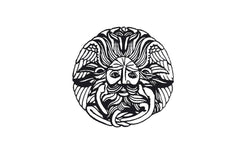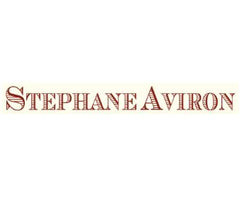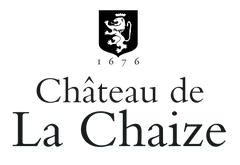Enjoy 10% off our curated selection of client favourites, staff picks, new arrivals, and hidden gems until November 24, 11:59pm EST!
Code: FALLSAVINGS
9 products
- Red Wine
- Pinot Noir
- Sustainable
- Dry
- Medium Bodied
- 750ml
- 13% alc./vol
About the Winery
Groupe Bellene

Led by Nicolas Potel in Beaune, Groupe Bellene is composed of the négociant arm Maison Roche de Bellene, the winery arm Domaine de Bellene, and a special back-vintage series under the Collection Bellenum label.
- Maison Roche de Bellene offers a complete range of wines, with an emphasis on individual terroirs from old vines of more than 40 years. All of the growers that Nicolas works with are either organic certified or sustainably farmed.
- Domaine de Bellene represents the wines that are produced and bottled from Nicolas Potel's private vineyard holdings.
- Collection Bellenum is a back vintage series that Nicolas Potel sourced from his friends in the region, offering a magnificent selection of bottled history. The wines have moved only twice in their lives, from the original cellar to Potel's and now to yours!
Nicolas Potel grew up at Volnay's Domaine Pousse d'Or, where his father worked. He trained abroad and returned home in 1996 to build a négociant business and started Maison Nicolas Potel, where he sourced grapes from good parcels, often working with the growers to improve the quality. By 2002, he was making 120 wines from 50 different appellations, and the rest is history!
Press Reviews
Wine Align
91 points - David Lawrason
This is an utterly charming, easy drinking and refined pinot. The hot 2018 vintage has layered in some ripeness with fine aromas of red cherry/raspberry compote, fine shrubby, foresty notes, and subtle oak spice. It is light to medium bodied, very smooth with fine tannin. The length is very good to excellent. Such poise and balance. Best now to 2023. Tasted June 2021.
90 points - Michael Godel
Nothing quite like a “normal” year to craft the most getable and crushable Bourgogne at the behest and passionate hands of Nicolas Potel. Old vines are in the 45 to 50 year range in highest of high density plantings harvested at a “normal” time in this post-modernist, climate adjusted period. That being the 5th to the 13th of September and fruit already ripe, burning the brix and phenol candle at both ends. Nose in to the promise of violets and roses, dive in for crunchy red fruit and some pretty solid tannins. That early yet necessary pick preserved acids with much to say in a pinot noir as tart and spirited as it is enriching of spirit. Despite the high drink-ability factor the structural parts creep up so wait a year for this to settle further. Drink 2022-2025. Tasted June 2021.
90 points - Sara d'Amato
Lovely, bright, crunchy and lively, this entry level Bourgogne from Roche de Bellene rarely disappoints. With a fine, elegant, and well-integrated oak treatment and an invitingly silky texture, this pinot noir is notably compelling and delivers solid value. Excellent length. Tasted June 2021.
- Red Wine
- Gamay
- Biodynamic, Sustainable, Vegan-Friendly, Volcanic
- Dry
- Medium Bodied
- 750ml
- 13% alc./vol
About the Winery
Stéphane Aviron

Stéphane Aviron can be considered a pioneer in his approach to winemaking in Beaujolais, however he would just tell you that he’s simply returning to the traditional practices that have always made fantastic Gamay wines. Sustainable viticulture, extremely old vines and classic Burgundian techniques. He focuses on the Beaujolais village crus, all but forgotten gems of vineyards when the nouveau craze took over, which are the best sites for unique, expressive and terroir driven wines. All of the fruit is sourced from old vines (40+ years), so seeing Vieilles Vignes on the label is a rite of passage, not a privilege. Authenticity and a distinctly Beaujolais style of winemaking is what sets Stéphane apart from the rest.
Press Reviews
Wine Align
93 points - David Lawrason
Chenas is one of the smallest appellations of Beaujolais, situated astride more famous Fleurie. Both villages tend to make gamays with both richness and elegance. This sports a ripe nose of cherry/strawberry jam, peony and subtle pepper. It is medium bodied, smooth, firm and refined with gentle tannin. And the length is excellent. Very easy to enjoy now and should hold through 2028. Tasted June 2022
92 points - Megha Jandhyala
This is a fetching gamay with buoyant fruit notes of cherries and raspberries accompanied by aromas of candied violets, rosemary, and snapped twigs. The palate echoes these flavours with subtle notes of cured meat joining the chorus. Tannins are satin smooth and acids are tart. Length is excellent with a delightful fruity finale. Best 2022-2027. Tasted June 2022 by Critic Understudy Megha Jandhyala.
91 points - John Szabo, MS
This is a pleasantly twiggy-herbal-stemmy expression of Chenas with plenty of joyful fruit underpinning the ensemble. I like the fleshy dark cherry fruit on the palate, the silky-firm tannins, and the excellent length in the category. A superior cru; drink or hold late into the decade. Tasted June 2022.
91 points - Michael Godel
Chénas by Aviron is the cru that takes what the Villages offers and simply gives more. By home and vineyard the extrapolation and extension is natural, seamless and duly noted, from dancing fruit, happy palate and now, something viably more. Salumi and wet stone, a modicum of structure, violets in perfume and furthered texture. A positive thickening that stays with the palate, lingers and gracefully moves on. This is gamay to pour for people ready to get it and get at it. Drink 2022-2026. Tasted June 2022.
90 points - Sara d'Amato
An intriguing mix of ripe and jammy along with stemmy and herbal from the warm 2020 vintage. Juicy on the palate with flavours of cherry, bramble, wet leaf and a hint of carbonic. Mouthfilling and fleshy overall with plush red fruit on the finish of very good length. Tasted June 2022.
- Red Wine
- Cinsault, Grenache, Syrah
- Organic, Vegan-Friendly
- Dry
- Full Bodied
- 750ml
- 14.5% alc./vol
About the Winery
Château de Montfaucon

Just across the Rhone river from the beautiful vineyards of Chateauneuf-du-Pape, the Lirac appellation extends itself on the low hills alongside the river. The history of Château de Montfaucon dates back to the 11th century when the castle's first tower was built. The castle's role in history was strategic; the Rhône River was the border between the French Kingdom and the Holy Roman German Empire. Montfaucon was one of many castles and fortresses along the Rhône River constructed to guard the border.
Rodolphe de Pins took over the family estate of Montfaucon in 1995 and subsequently rebuilt the winery and began practicing sustainable agriculture. He honed his winemaking skills in Barossa at Henschke and Vieux Telegraphe in Châteauneuf du Pape before returning to Lirac, so needless to say, his familiarity with the local varieties is well established.
Press Reviews
Wine Align
92 points - David Lawrason
From a leading estate in the small, excellent Lirac appellation this is a lovely, tender blend of grenache, syrah and 10% cinsault. It has a very lifted, fragrant nose of red cherry, red rose, peppery spice and a pleasant charcuterie note. It is very rounded, supple and open knit with warm alcohol powering the flavours. Tannins are very fine. The length is excellent. Drinking very well now. Tasted April 2024
- Rosé Wine
- Grenache, Syrah
- Organic, Vegan-Friendly
- Dry
- Medium Bodied
- 750ml
- 13.5% alc./vol
About the Winery
Mas Carlot

Mas Carlot is situated in the south of the Rhône Valley, extending across 76 hectares of pebbly land southeast of Nîmes. Originally a 17th century farm, this beautiful estate was resurrected in the 1960's by the Blanc family—it is currently run Cyril Mares of the neighbouring and equally reputable property, Mas Bressades.
The appellation of Costières de Nîmes used to be considered part of eastern Languedoc but the climate, soil, topography and wine are far closer to those just over the river in the Southern Côtes du Rhône. It is now a region very much on the up and is widely recognized as a great source of excellent value wine.
Press Reviews
Robert Parker
91 points
Mas Carlot's 2021 Costieres de Nimes Rose Generations is a terrific blend of 55% Grenache, 35% Syrah and 10% Mourvèdre. Offering up generous aromas of strawberry, watermelon and lime, it's medium-bodied, plump and expansive on the palate. Made in a traditional style, with more color and extraction than the skinnier, more citrusy Provence wannabes, this is a lovely wine, with touches of silk and spice on the finish, not just citrus.
- White Wine
- Melon de Bourgogne
- Dry
- Light Bodied
- 750ml
- 11.9% alc./vol
Press Reviews
WineAlign
90 points - Sara d'Amato
A Muscadet made with care and reverence, refreshing with a delicate leesy influence contributing toastiness and amplitude. Features more complexity than the norm with flavours of pear, anise, clay and chalk. Saly, energetic and undeniably engaging! Great value. Tasted February 2023.
90 points - Michael Godel
A deliciously leesy and liquid chalky melon de bourgogne that is simply what the doctor orders for those of modest means when they need a quenching after sucking back a briny oyster. This is like liquifying the shell as a chaser and with some mouthfeel to boot. Salty and just refined enough to do the bivalve molluscs pulled from marine or brackish habitats proud. Drink 2023-2025. Tasted February 2023.
90 points - Megha Jandhyala
This golden muscadet was made with fruit from vines that are more than 40 years old, planted on slopes facing south and south-east. It is relatively aromatic, perfumed with notes of honeysuckle, grapefruits, and toasted bread. The palate feels fleshy and rounded but also fresh and vibrant, and delicately salty. The finish is long-lasting, leaving flavours of citrus zest and a fine texture in its wake. I would pair this muscadet with subtly flavoured seafood, like mussels or oysters. Tasted February 2023 by Critic Understudy Megha Jandhyala.
- White Wine
- Piquepoul Blanc
- Sustainable
- Dry
- Light Bodied
- 750ml
- 13.5% alc./vol
- Red Wine
- Mourvèdre / Monastrell, Syrah
- Natural, Organic, Vegan-Friendly
- Dry
- Full Bodied
- 750ml
- 13.5% alc./vol
About the Winery
Domaine Frédéric Brouca

Frédéric grew up in Normandy and met his Canadian wife Elaine at university in Lille, Northern France. They live a nomadic lifestyle (Canada, India, Singapore and USA) though Frédéric spends about half of his time in Faugères. Since early age, Frédéric had a calling for farming and the fierce desire to become a winegrower. After completing a Masters Degree in Finance in 2001, Frédéric went back to college for a Sommelier diploma and started his career as a Burgundy wine broker.
In late 2012, Frédéric and Elaine were fortunate to take over 25 acres of old vines in Faugères, organically farmed for twenty years and deeply rooted in schist soils.
2013 was the inaugural vintage for Domaine Frédéric Brouca. In his modest winery in the village of Laurens, Frédéric is creating a new vision for Faugères wines; fresh, vibrant and made without artifice. Nothing revolutionary, simply returning to our grandparent's ideology of farming and winemaking to craft 'Vins Vivants'. The Faugères Appellation is in the heart of Languedoc in the Hérault department. Here, winemaking dates back to the Greek times and was developed during the Roman Era. It wasn't until the early 1900's, however, that the wines became more widely known for its unique schist soils and moderate Mediterranean climate. These villages are heavily reliant on wine as an important part of their culture and economy.
The area is stunning with mountain views and close proximity to the Mediterranean Sea (20 miles / 30 kms). Faugères has a long history of responsible farming. It boasts the highest percentage of organic vineyards for any AOC in all of France with almost 50% of farmers making the choice.
Press Reviews
Wine Align
93 points - John Szabo
Clos Sauveplan is a blend of about 3/4 high density planted mourvèdre and the balance in half-century-old syrah from the lieu-dit of the same name, a plateau in the Faugères AOC in southern France. It's showing beautifully at the moment, rich, redolent of fresh black forest fruits, blackberry coulis, wild violets and cracked black peppercorn, really quite a tour de force. The palate is broad but fresh, impeccably balanced and so lively considering the warm vintage, declared at 12.5% alcohol but coming across as riper and denser than the numbers would imply. Tannins are silky and resolving nicely, and length, depth, and ultimately complexity, are excellent. One of Brouca's best to date I'd say; drink or hold a half dozen years - the stuffing augurs well for development. Tasted January 2024.
92 points - Michael Godel
The source for this co-ferment of mourvèdre and syrah is a “clos,” meaning an isolated walled vineyard in a lieu-dit called “Sauveplane”, plateau at the eastern limit of the Faugères appellation. A mix of 20 and 40 year-old vines, volcanic soils, some whole cluster fermentation. Exotically spiced, sweetly volatile. Low-level Brettanomyces, so bloody Faugères, exemplary and expected for a wine to speak up on behalf of this particular sense of place. The kind of Languedoc red that sommeliers and naturalists will share and swig with reckless abandon while those who have never tried this style and origin may be left to wonder in confounded disarray. Just know that this is very correct for producer, style and place. Drink 2024-2027. Tasted January 2023.
91 points - Sara d'Amato
From old vines farmed with minimal intervention on the plateau of "Sauveplane", a lieu-dit on the eastern edge of Faugères. Spontaneously co-fermented syrah and mourvèdre grapes are left unfined and unfiltered in the low-interventionist style of Fredric Brouca. Subsequently aged 13 months in oak resulting in very gentle spice and pleasantly mellow tannins. Offers a notable sense of place and varietal character. Relatively speaking, the wine is quite clean and still exhibits plenty of fresh fruit and very good length. Tasted January 2024.
- Red Wine
- Mourvèdre / Monastrell, Syrah
- Natural, Organic, Vegan-Friendly
- Dry
- Full Bodied
- 750ml
- 13.5% alc./vol
About the Winery
Domaine Frédéric Brouca

Frédéric grew up in Normandy and met his Canadian wife Elaine at university in Lille, Northern France. They live a nomadic lifestyle (Canada, India, Singapore and USA) though Frédéric spends about half of his time in Faugères. Since early age, Frédéric had a calling for farming and the fierce desire to become a winegrower. After completing a Masters Degree in Finance in 2001, Frédéric went back to college for a Sommelier diploma and started his career as a Burgundy wine broker.
In late 2012, Frédéric and Elaine were fortunate to take over 25 acres of old vines in Faugères, organically farmed for twenty years and deeply rooted in schist soils.
2013 was the inaugural vintage for Domaine Frédéric Brouca. In his modest winery in the village of Laurens, Frédéric is creating a new vision for Faugères wines; fresh, vibrant and made without artifice. Nothing revolutionary, simply returning to our grandparent's ideology of farming and winemaking to craft 'Vins Vivants'. The Faugères Appellation is in the heart of Languedoc in the Hérault department. Here, winemaking dates back to the Greek times and was developed during the Roman Era. It wasn't until the early 1900's, however, that the wines became more widely known for its unique schist soils and moderate Mediterranean climate. These villages are heavily reliant on wine as an important part of their culture and economy.
The area is stunning with mountain views and close proximity to the Mediterranean Sea (20 miles / 30 kms). Faugères has a long history of responsible farming. It boasts the highest percentage of organic vineyards for any AOC in all of France with almost 50% of farmers making the choice.
Press Reviews
Wine Align
93 points - John Szabo
Clos Sauveplan is a blend of about 3/4 high density planted mourvèdre and the balance in half-century-old syrah from the lieu-dit of the same name, a plateau in the Faugères AOC in southern France. It's showing beautifully at the moment, rich, redolent of fresh black forest fruits, blackberry coulis, wild violets and cracked black peppercorn, really quite a tour de force. The palate is broad but fresh, impeccably balanced and so lively considering the warm vintage, declared at 12.5% alcohol but coming across as riper and denser than the numbers would imply. Tannins are silky and resolving nicely, and length, depth, and ultimately complexity, are excellent. One of Brouca's best to date I'd say; drink or hold a half dozen years - the stuffing augurs well for development. Tasted January 2024.
92 points - Michael Godel
The source for this co-ferment of mourvèdre and syrah is a “clos,” meaning an isolated walled vineyard in a lieu-dit called “Sauveplane”, plateau at the eastern limit of the Faugères appellation. A mix of 20 and 40 year-old vines, volcanic soils, some whole cluster fermentation. Exotically spiced, sweetly volatile. Low-level Brettanomyces, so bloody Faugères, exemplary and expected for a wine to speak up on behalf of this particular sense of place. The kind of Languedoc red that sommeliers and naturalists will share and swig with reckless abandon while those who have never tried this style and origin may be left to wonder in confounded disarray. Just know that this is very correct for producer, style and place. Drink 2024-2027. Tasted January 2023.
91 points - Sara d'Amato
From old vines farmed with minimal intervention on the plateau of "Sauveplane", a lieu-dit on the eastern edge of Faugères. Spontaneously co-fermented syrah and mourvèdre grapes are left unfined and unfiltered in the low-interventionist style of Fredric Brouca. Subsequently aged 13 months in oak resulting in very gentle spice and pleasantly mellow tannins. Offers a notable sense of place and varietal character. Relatively speaking, the wine is quite clean and still exhibits plenty of fresh fruit and very good length. Tasted January 2024.
- Red Wine
- Gamay
- Volcanic
- Dry
- Residual Sugar: 2.00 g/l
- Light Bodied
- 750ml
- 13.50% alc./vol
About the Winery
Domaine du Château de La Chaize

Château de La Chaize is among the oldest, most historic estates in Burgundy’s Beaujolais region. Cared for by the same family for nearly three and a half centuries, the estate has been passed on to new owners, the Gruy family, who are equally committed to managing the estate with the utmost care, while implementing an ambitious environmental plan. Among the many initiatives is the conversion of all vineyards to organic farming, the adoption of precision viticulture, reducing carbon their carbon footprint, and recycling every by-product from viti- and vinicultural activity, to achieve zero waste.
Founded in 1670 by the seneschal of Lyon François de la Chaize d’Aix, the main Château de la Chaize building and gardens were completed by Jules-Hardouin Mansart and André le Nôtre, respectively architect and gardener of the Château de Versailles. Château de la Chaize is among the oldest, most historic estates in Burgundy’s Beaujolais region. Boasting over 250 acres of vineyards, it is also one of the largest. It is today considered one of the most innovative estates in Burgundy. Among its forward- thinking practices is the adoption of eco-friendly farming techniques, commonly referred to as Agriculture Raisonnée. Chemical treatments have been reduced to a strict minimum, for example, and the growing of grass between rows has been re-introduced to enrich the soil and reduce erosion.
Press Reviews
Wine Advocate
93 Points - William Kelly
The 2020 Côte de Brouilly Brûlhier has turned out very well, delivering aromas of cherries, blackberries, sweet spices and peonies, followed by a medium to full-bodied, velvety and vibrant palate that's concentrated and complete, with lively acids and ripe structuring tannins. As readers may remember, it's derived from a southeast-facing site characterized by blue rock and numbers among the prime lieux-dits of the appellation.









